Results 1 to 6 of 6
Thread Information
Users Browsing this Thread
There are currently 1 users browsing this thread. (0 members and 1 guests)
-
05-28-2019, 10:06 PM #1
American Soil Is Being Globalized: Nearly 30 Million Acres Of US Farmland Now Owned B
American Soil Is Being Globalized: Nearly 30 Million Acres Of US Farmland Now Owned By Foreigners

...when we refer to 'the heartland of America', the truth is that vast stretches of that 'heartland' is now owned by foreigners, and most Americans have no idea that this is happening.
Tue, 05/28/2019 - 18:45
14 SHARES
Authored by Michael Snyder via The Economic Collapse blog,
All across America, U.S. farmland is being gobbled up by foreign interests. So when we refer to “the heartland of America”, the truth is that vast stretches of that “heartland” is now owned by foreigners, and most Americans have no idea that this is happening. These days, a lot of people are warning about the “globalization” of the world economy, but in reality our own soil is rapidly being “globalized”. When farms are locally owned, the revenue that those farms take in tends to stay in local communities. But with foreign-owned farms there is no guarantee that will happen. And while there is plenty of food to go around this is not a major concern, but what happens when a food crisis erupts and these foreign-owned farms just keep sending their produce out of the country? There are some very serious national security concerns here, and they really aren’t being addressed. Instead, the amount of farmland owned by foreigners just continues to increase with each passing year.
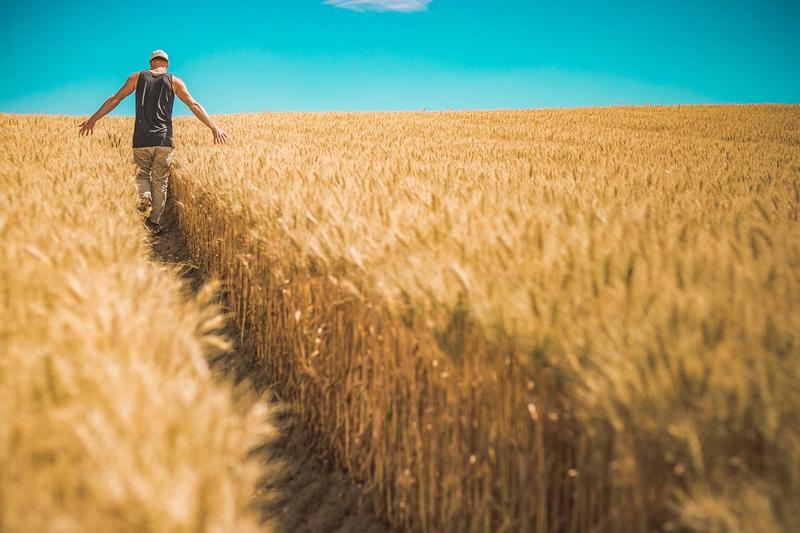
Prior to seeing the headline to this article, how much U.S. farmland would you have guessed that foreigners now own?Personally, I had no idea that foreigners now own nearly 30 million acres. The following comes from NPR…American soil.
Those are two words that are commonly used to stir up patriotic feelings. They are also words that can’t be be taken for granted, because today nearly 30 million acres of U.S. farmland are held by foreign investors. That number has doubled in the past two decades, which is raising alarm bells in farming communities.
How did we allow this to happen?And actually laws regarding land ownership vary greatly from state to state. Some states have placed strict restrictions on foreign land ownership, while in other states it is “a free-for-all”…“Texas is kind of a free-for-all, so they don’t have a limit on how much land can be owned,” say’s Ohio Farm Bureau’s Ty Higgins, “You look at Iowa and they restrict it — no land in Iowa is owned by a foreign entity.”
Ohio, like Texas, also has no restrictions, and nearly half a million acres of prime farmland are held by foreign-owned entities. In the northwestern corner of the state, below Toledo, companies from the Netherlands alone have purchased 64,000 acres for wind farms.
But even in states where there are restrictions, foreign entities can get around that by simply buying large corporations that own land.For example, when the Chinese purchased Smithfield Foods in 2013 they instantly gained control over 146,000 acres of prime farmland. The following comes from Wikipedia…Smithfield Foods, Inc., is a meat-processing company based in Smithfield, Virginia, in the United States, and a wholly owned subsidiary of WH Group of China. Founded in 1936 as the Smithfield Packing Company by Joseph W. Luter and his son, the company is the largest pig and pork producer in the world.[4] In addition to owning over 500 farms in the US, Smithfield contracts with another 2,000 independent farms around the country to grow Smithfield’s pigs.[5] Outside the US, the company has facilities in Mexico, Poland, Romania, Germany, and the United Kingdom.[6]Globally the company employed 50,200 in 2016 and reported an annual revenue of $14 billion.[2] Its 973,000-square-foot meat-processing plant in Tar Heel, North Carolina, was said in 2000 to be the world’s largest, processing 32,000 pigs a day.[7]
Then known as Shuanghui Group, WH Group purchased Smithfield Foods in 2013 for $4.72 billion, more than its market value.[8][9] It was the largest Chinese acquisition of an American company to date.[10] The acquisition of Smithfield’s 146,000 acres of land made WH Group, headquartered in Luohe, Henanprovince, one of the largest overseas owners of American farmland.[a]
Of course this hasn’t happened by accident.The communist Chinese government has actually made the purchase of foreign agricultural assets a top national priority in recent years, and this has been reflected in a series of key documents…
The strategy is reflected in encouragements to invest abroad by various documents and articles issued by Chinese leaders. For example, a series of annual “Number one documents” from China’s communist party authorities stating rural policy have contained increasingly specific strategies for investment. A general exhortation to invest in agriculture overseas, issued in 2007, was followed by an initial surge in overseas farming ventures. In 2010, authorities called for supportive policies to encourage investment abroad.
The 2014 document included a more specific mandate to create large grain-trading conglomerates, designed to give Chinese companies greater control over oilseed and grain imports. That was the same year COFCO acquired Nidera and Noble Agri, making COFCO one of the largest trading companies in the world based on value of assets. The 2015 document specifically called for policies to support facilities, equipment, and inputs for agricultural production in foreign countries. The 2017 document broadened the encouragement to include all types of agricultural conglomerates. The 2018 document repeated the general endorsement of overseas investment and instructions to create multinational grain-trading and agricultural conglomerates.
In the end, how much Chinese ownership of our farmland would we be comfortable with?If they owned 20 percent of our farmland, would we be okay with that?
Well, what if that figure surged to 30 or 40 percent?
Would that still be okay?
We need to start asking these sorts of questions, because foreigners are buying up more of our farmland with each passing day, and this is a very real national security threat.
And after this absolutely disastrous year, thousands more U.S. farmers will be forced out of business and it is anticipated that more U.S. farmland will be up for sale than ever before.
I extensively discussed the problems that farmers in the middle of the country are currently having yesterday, and today I would like to share with you a portion of an email that a friend in Missouri just sent me…
I work for a farmer in West-Central Missouri who raises corn, soybeans, and cattle and to say it’s been a challenging Spring would be the understatement of the year!!! We managed to get some corn planted in April but it started to rain and rain and rain and we still have more corn to plant. My boss doesn’t like to plant corn after May 15 and here it is May 27 and we still are not done planting corn. With each late day that passes by the yield goes down so what do you do??? Do we start planting soybeans if or when it dries up even though the price of soybeans is at a record low or do we plant corn that has risen in price but will have a reduced yield??? From April 28 through today (May 27) we have had 10 inches of rain. One day we had 4.5 inches with roads and basements flooded. Last week we had rain 4 out of those 7 days!!! It’s raining again today as I write this!!! We need warm, sunshine, dry, windy days and we get mostly cool, cloudy, rainy days. Next Thursdays low is supposed to be 57!!! If the weather pattern doesn’t change I don’t see how we can ever get the soybeans planted and we have 1,300 acres to plant. There are large farmers in my area that don’t have anything planted.
This truly is a “perfect storm” for U.S. farmers, and many believe that what we have witnessed so far is just the beginning.
Farm bankruptcies are already at the highest level that we have seen since the last recession, and do we really want foreigners gobbling up even more of our farmland from farmers that are incredibly desperate to sell?
Our founders never intended for America to be for sale to the highest bidder, and hopefully more states will start passing laws that will make sure that U.S. farms stay in the hands of U.S. farmers.
https://www.zerohedge.com/news/2019-...land-now-ownedIf you're gonna fight, fight like you're the third monkey on the ramp to Noah's Ark... and brother its starting to rain. Join our efforts to Secure America's Borders and End Illegal Immigration by Joining ALIPAC's E-Mail Alerts network (CLICK HERE)
-
05-28-2019, 10:16 PM #2Forget "Money" - What Will Matter Are Water, Energy, Soil, & Food... And A Shared National Purposehttps://www.zerohedge.com/news/2019-...hared-national
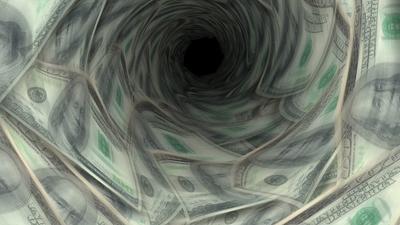
The status quo measures wealth with "money," but "money" is not what's valuable...
Tue, 05/28/2019 - 16:45
2 SHARES
Authored by Charles Hugh Smith via OfTwoMinds blog,
If you want to identify tomorrow's superpowers, overlay maps of fresh water, energy, grain/cereal surpluses and arable land.
The status quo measures wealth with "money," but "money" is not what's valuable. "Money" (in quotes because the global economy operates on intrinsically valueless fiat currencies being "money") is wealth only if it can purchase what's actually valuable.
As the world slides into an era of scarcities, what will matter more than "money" are the essentials of survival: fresh water, energy, soil and the output of those three, food. The ability to secure these resources will separate nations that fail and those that survive.
In a world of abundance, it's assumed every essential resource can be bought on the open market. Surpluses are placed on the market and anyone with "money" can buy the surplus.
Things work differently in scarcity: "money" buys zip, zero, nada because nobody with what's scarce can afford to give it away for "money" which can no longer secure what's scarce.
Parachute into a desert with gold, dollars, euros, yen and yuan, and since there's nothing to buy, all your money is worthless. Once you're thirsting to death, you'd give all your money away for a liter of fresh water. But why would anyone who needs that liter for their on survival trade it for useless "money"?
Imagine the longevity of a regime which sold the nation's food while its populace went hungry. Not very long once the truth comes out.
Having resources is only one component: consumption is the other half of the picture. Having 4 million barrels a day of oil (MBPD) is nice if you're only using 3 MBPD, but if you're consuming 8 MBPD, you still need to import 4 MBPD.
Water and soil are not tradable commodities. Nations which share water resources (rivers and watersheds) have to negotiate (or fight wars over) the division of that scarce resource, but as a generality, fresh water and fertile soil can't be bought and sold like grain and oil.
The number of nations with surplus energy and food to export is small. As I noted in Superbugs and the Ultimate Economic Weapon: Food, there are contingencies in food production which could quickly erase surpluses and exports and trigger widespread shortages that have the potential to unleash social unrest.
Energy exports are also a natural economic weapon with which to reward needy friends or punish desperate enemies (no oil or natural gas for you!).
But energy exports are also contingent: natural gas and oil pipelines can be blown up by non-state players, shipping chokepoints can be closed or mined, regimes can change overnight and so on.
The value of a nation's currency can be understood as a reflection of its essential resources, what I have called the FEW resources (food, energy, water) which I would now amend to FEWS (food, energy, water, soil).
Nations which are frugal about creating currency (either via printing/issuance or borrowing it into existence) while prudently managing their fresh water, energy, soil and food will in effect be "backing" their currency with their surpluses of what will be increasingly scarce.
Nations which borrow into existence or emit currency profligately while having scarce FEWS resources and enormous needs for imported food and energy will find their currency rapidly loses value.
When there's not enough energy and food to go around, who will trade what's scarce and valuable for what's abundant and worthless ("money")? The answer is no one.
If you want to identify tomorrow's superpowers, overlay maps of fresh water, energy, grain/cereal surpluses and arable land: those nations with abundances that can yield sustainable surpluses in food and energy while taking care of domestic needs will have wealth and power.
Those with diminishing resources that are inadequate to meet domestic demand will have very little wealth, no matter how much "money" they print or borrow into existence or how much consumerist "stuff" they produce.
There are two other attributes that matter: being able to defend your FEWS resources from would-be thieves and a widely shared national sense of purpose that enables shared sacrifice for the common good. Without that shared source of unity, the elites with wealth and power will grab more and more, bringing down the house around them with their limitless greed.
Sacrifice either starts at the top or it means nothing. Forcing commoners to suck up sacrifices only exacerbates disunity and national dissolution.
There are no guarantees that any nation will be able to assemble all that it will take to survive an era of scarcity. But some have better odds than others. Place your bets accordingly.
I'm reprinting these charts to emphasize how few nations have geopolitically meaningful surpluses of food.
Corn is often the primary food for livestock. No corn, not much meat.
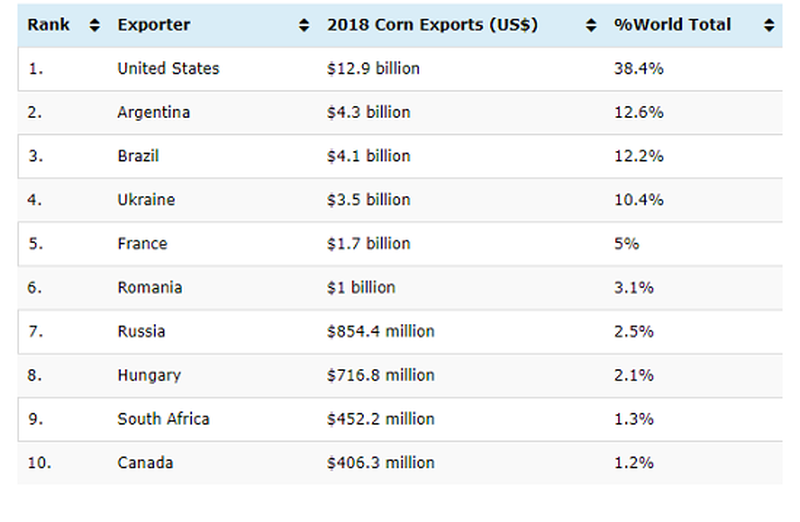 The exportable surpluses of wheat are concentrated in a few hands.
The exportable surpluses of wheat are concentrated in a few hands.
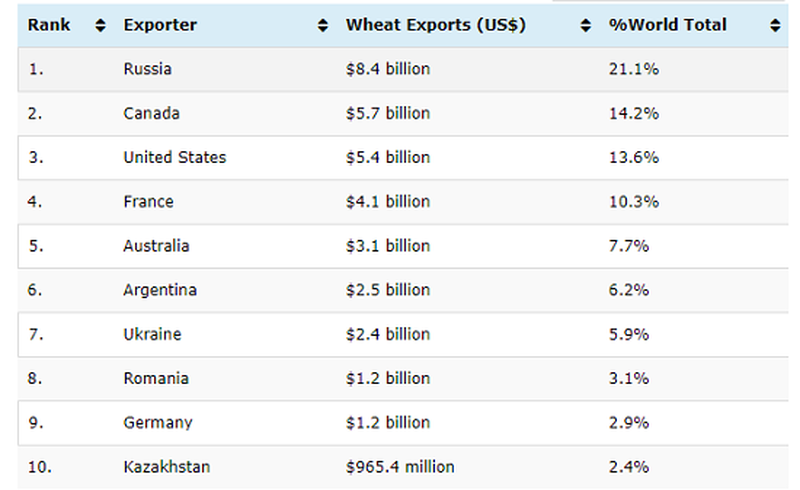 The same is true of soybeans, a source of protein in Asia and livestock feed everywhere. This chart shows the top producers and the top consumers.
The same is true of soybeans, a source of protein in Asia and livestock feed everywhere. This chart shows the top producers and the top consumers.
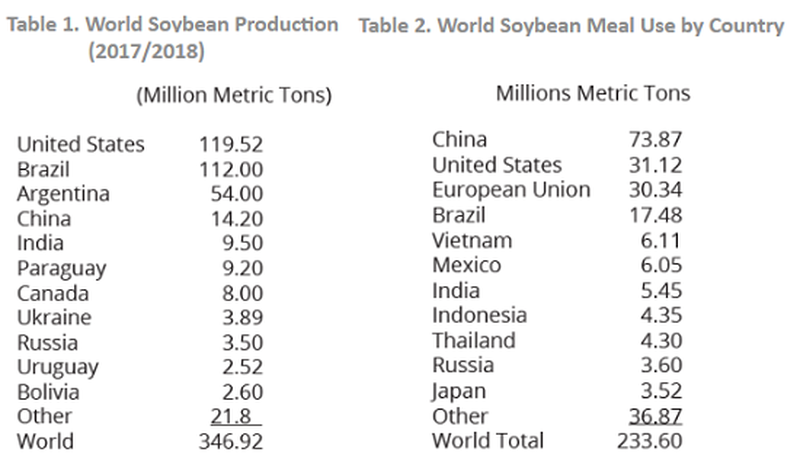
* * *
If you're gonna fight, fight like you're the third monkey on the ramp to Noah's Ark... and brother its starting to rain. Join our efforts to Secure America's Borders and End Illegal Immigration by Joining ALIPAC's E-Mail Alerts network (CLICK HERE)
-
05-29-2019, 06:52 AM #3
I would not have a kid if I were young again. This country will look just like the 3rd world dumps all over the world.
We need massive chain deportation and REVERSE the damage Bush, Clinton, Obama and now what Trump is doing to our country by allowing this and the massive invasion happening at our border.
Shut down the refugee, asylum, TPS, illegal alien programs now!
No more anchor baby! These hateful people overbreed and are bankrupting us while destroying and trashing our neighborhoods!ILLEGAL ALIENS HAVE "BROKEN" OUR IMMIGRATION SYSTEM
DO NOT REWARD THEM - DEPORT THEM ALL
-
05-29-2019, 12:34 PM #4NO AMNESTY
Don't reward the criminal actions of millions of illegal aliens by giving them citizenship.
Sign in and post comments here.
Please support our fight against illegal immigration by joining ALIPAC's email alerts here https://eepurl.com/cktGTn
-
05-29-2019, 12:38 PM #5NO AMNESTY
Don't reward the criminal actions of millions of illegal aliens by giving them citizenship.
Sign in and post comments here.
Please support our fight against illegal immigration by joining ALIPAC's email alerts here https://eepurl.com/cktGTn
-
05-30-2019, 03:02 AM #6If you're gonna fight, fight like you're the third monkey on the ramp to Noah's Ark... and brother its starting to rain. Join our efforts to Secure America's Borders and End Illegal Immigration by Joining ALIPAC's E-Mail Alerts network (CLICK HERE)
Similar Threads
-
Foreign Ownership Up By 1 Million Acres
By JohnDoe2 in forum Other Topics News and IssuesReplies: 3Last Post: 04-11-2014, 07:59 PM -
The Man With a Million Acres
By JohnDoe2 in forum Other Topics News and IssuesReplies: 0Last Post: 10-27-2012, 03:51 PM -
Read Between the Lines: Hollywood Mogul Buys 2,600 Acres of Farmland; Moving to New Z
By AirborneSapper7 in forum Other Topics News and IssuesReplies: 0Last Post: 02-05-2012, 05:11 AM -
Nearly a million acres of prime Mississippi farmland threate
By kathyet in forum Other Topics News and IssuesReplies: 2Last Post: 05-12-2011, 09:52 AM -
GENOCIDE - 260 Haiti disasters on American soil: 52 million
By AirborneSapper7 in forum Other Topics News and IssuesReplies: 1Last Post: 01-26-2010, 03:59 AM


 3Likes
3Likes LinkBack URL
LinkBack URL About LinkBacks
About LinkBacks




 Reply With Quote
Reply With Quote


EXCLUSIVE: Photos Prove Mexican Cops Assaulted Migrants During...
04-20-2024, 05:59 AM in illegal immigration News Stories & Reports